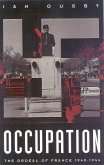After Dunkirk and the fall of France in the summer of 1940, the immediate threat of a Nazi invasion of Britain caused a tidal wave of panic across Britain, and Somerset with its long coastline was seen as a target. Fortunately a number of far-sighted individuals in the British government, the Secret Intelligence Service and the armed forces had taken the Nazi threat more seriously than the appeasers and planned for clandestine warfare after Britain had been occupied. The Secret Intelligence Service and the War Office fought a bitter battle for ultimate control of the British 'sabotage service' and out of this conflict sprang a number of secret organisations. The best known of these was the Auxiliary Units which was a short-term rural-based civilian guerrilla force organised through the War Office. A clandestine intelligence gathering and communications cadre called the Special Duties Branch was set up and run by the Secret Intelligence Service. This book is believed to be first to attribute a significant political element to the DNA of the Auxiliary Units and Special Duties Branch, from the Establishment figures at the very top, down to the adventurous ex-public school and Oxbridge educated Army officers who led at regional level. At the time Britain was politically divided and the Establishment feared arming the workers and increasing the risk of armed insurrection at home. Therefore recruitment to the guerrilla network focused on rural areas, purposely avoiding the industrial heartlands and in doing so deliberately steered the organisation away from a left-of-centre political bias. Follow this history of Somerset and view its sleepy wartime in a new light and learn the secrets under the softly rolling hills and misty moorlands. "An astonishingly detailed and well researched book, a great read for any historian." - Claire Ashton - www.book-reviewer.com.








